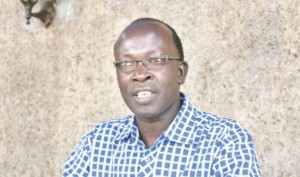Kenyan journalist disputes ICC arrest warrant
 Kenyan Journalist, William Barasa has challenged the International Criminal Court’s (ICC) warrant for his arrest.
Kenyan Journalist, William Barasa has challenged the International Criminal Court’s (ICC) warrant for his arrest.
According to him, this aspect of the International Crimes Act contravenes the Kenyan constitution.
On Wednesday, Barasa failed to get a court to rule against his arrest and transfer to the ICC. However, Mr Justice George Odunga ordered the the Inspector-General of Police to assign security officers to guard the journalist until a final ruling is made on his case on Friday.
The Judge said he will examine evidence from Barasa’s lawyer and the government before making a final decision on whether to approve the ICC’s request to extradite Barasa.
Barasa says he was only notified of the warrant for his arrest on the 15th of September when security officials attempted to take him into custody.
According to his lawyer, Kibe Mungai, the procedure followed to effect the arrest warrant for his client is flawed. He contends that the fact that Cabinet Secretary for Interior Ole Lenku and the Attorney General Githu Muigai attempted to enforce the arrest warrant without the consent of the Director of Public Prosecutions violates his client’s fundamental rights under Article 10 of the Kenyan constitution.
He also said the fact that they went ahead to effect the warrant without providing his client with a copy of the warrant also violates several articles of the Kenyan constitution.
According to Barasa, he is being prosecuted for his refusal to comply with an ICC’s investigator’s request to cajole witnesses to doctor their testimonies in the case against Vice President Ruto. But fabricating evidence is an offence under the founding laws of the ICC.
Barasa had worked with the ICC in its investigations in Kenya before this fallout.
On October 2nd, it was revealed that the ICC had issued an arrest warrant for Barasa on allegations of interfering with witnesses in the ongoing case against Vice President Ruto.
Mr Mungai says given the sour state of the relationship between Barasa and ICC officials, his client is not likely to get a fair trial at the Hague. According to him, if his client is to be given a fair trial according to the laws of Kenya, he must be tried in Kenya.